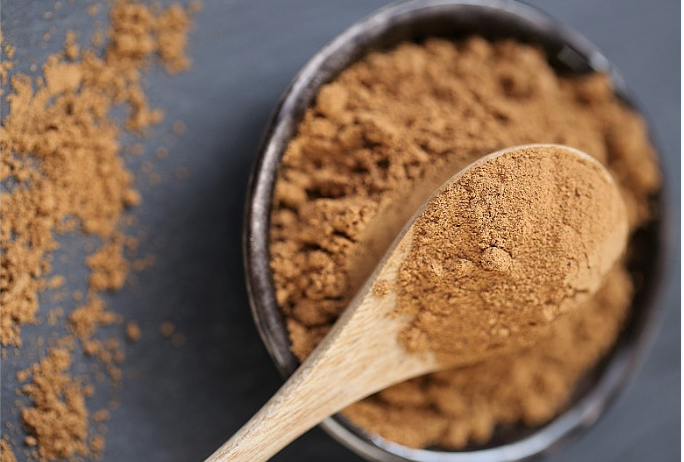
What’s Rosehip ?
Rosehip is a fleshy berry that develops from the receptacle of the rose after the rose has withered. Rosehip has the highest content of vitamin C. According to tests, the VC content of every 100 grams of the edible part of the fresh fruit is more than 6810 mg, and the highest is 8300 mg. It is the "crown of plant fruits on earth" and is known as the "king of VC". Calculated by its content, the VC content of rosehip is 220 times that of citrus; 1360 times that of apples; one gram of rosehip is equivalent to the VC content of one kilogram of apples; 26 times that of blackcurrant; 190 times that of strawberry; 213 times that of red bean; and 130 times that of kiwi fruit. 2-3 rosehips are enough to meet the human body's VC needs for a day and night, and the VC content of a 500-gram can of rosehip jam can meet the needs of a company of soldiers in the army for a whole day. It is regarded as a "special medicine for treating scurvy" by European countries and is known as the "vitamin record holder". By Due to the high content of vitamin C, rose hips are widely used in the beauty industry. Moreover, rose hips are very suitable for making desserts such as cakes and fruit tarts, or for making jams and jellies.
As a member of the Rosaceae family, rose hips have always been used as food or medicine. In foreign countries, research on rose hips has been carried out. It is rich in nutrients and is one of the fruits with the highest vitamin C content among fruits and vegetables. In addition, rose hips also contain other vitamins and minerals, carotene, flavonoids, fruit acids, tannins, pectin, sugars, amino acids a006Ed essential fatty acids. These compounds play a very important role in maintaining the quality and nutritional value of fruits, and are valuable raw materials for the development of new health care medicines and nutritional drinks.
Does rosehip have polyphenols ?
Rosehip extract contains a variety of chemical compounds, including:
1. Vitamin C: Rosehips are particularly rich in vitamin C, also known as ascorbic acid, which is a powerful antioxidant and essential nutrient for overall health.
2. Polyphenols: As mentioned earlier, rosehips contain polyphenols, including flavonoids and phenolic acids, which contribute to their antioxidant properties.
3. Carotenoids: Rosehips contain carotenoid compounds such as beta-carotene, lycopene, and beta-cryptoxanthin, which are known for their antioxidant and potential health-promoting effects.
4. Fatty acids: Rosehip extract contains essential fatty acids, including omega-3 and omega-6 fatty acids, which are beneficial for skin health and overall well-being.
5. Triterpenes: Rosehip extract also contains triterpene compounds, which have anti-inflammatory and potential therapeutic effects.
These are some of the key chemical components found in rosehip extract, and they contribute to its potential health benefits.

What are the benefits of rosehip extract ?
Rosehip extract is believed to offer several potential health benefits, including:
1. Antioxidant properties: The high content of polyphenols, vitamin C, and carotenoids in rosehip extract contributes to its strong antioxidant properties, which can help protect the body from oxidative stress and damage caused by free radicals.
2. Skin health: Rosehip extract is often used in skincare products due to its potential to promote skin health. It may help improve skin hydration, elasticity, and overall appearance, and it is often used to address issues such as dryness, aging, and scarring.
3. Joint health: Some studies suggest that rosehip extract have anti-inflammatory properties, which could potentially benefit joint health and alleviate symptoms of osteoarthritis.
4. Immune support: The high vitamin C content in rosehip extract can support the immune system, potentially helping the body fight off infections and illnesses.
5.Cardiovascular health: The antioxidant and anti-inflammatory properties of rosehip extract contribute to cardiovascular health by supporting healthy blood vessels and circulation.
How long does it take for rosehip to work?
The time it takes for rosehip to have an effect can vary depending on the specific health concern being addressed and individual factors such as metabolism, overall health, and the form of rosehip being used (e.g., oil, powder, extract). Some individuals may notice benefits relatively quickly, while for others, it may take several weeks or even months to experience the full effects of rosehip supplementation. It's important to use rosehip as directed and to be patient, as the timeline for experiencing its effects can differ from person to person.
Does rosehip have side effects?
Rosehip extract is generally considered safe for most people when taken in appropriate doses. However, some individuals may experience mild side effects, particularly when consuming high doses. Potential side effects of rosehip extract may include:
1. Digestive issues: Some people may experience mild gastrointestinal discomfort, such as nausea, stomach upset, or diarrhea, especially when consuming large amounts of rosehip extract.
2. Allergic reactions: While rare, allergic reactions to rosehip extract are possible in individuals with known allergies to roses or related plants. Symptoms may include skin rash, itching, or swelling.
3. Interactions with medications: Rosehip extract may interact with certain medications, particularly anticoagulants (blood thinners) or medications metabolized by the liver. If you are taking any medications, it's important to consult with a healthcare professional before using rosehip extract to avoid potential interactions.
As with any supplement, it's important to use rosehip extract responsibly and follow recommended dosages. If you experience any adverse effects, it's advisable to discontinue use and consult with a healthcare provider.
Does rosehip increase estrogen?
Rosehip itself does not contain estrogen. However, there is some evidence to suggest that certain compounds found in rosehip, such as phytoestrogens, may have weak estrogenic effects. Phytoestrogens are plant-derived compounds that can weakly mimic the activity of estrogen in the body. While the estrogenic effects of rosehip are not well-established, individuals with concerns about estrogen levels should consult with a healthcare professional before using rosehip or rosehip extract, especially if they have specific health conditions or are taking medications that may be affected by estrogenic activity.
Who should not take rosehip ?
While rosehip is generally considered safe for most people, there are certain individuals who should exercise caution or avoid taking rosehip. These include:
1. Allergy: Individuals with known allergies to roses or related plants should avoid rosehip or rosehip extract to prevent potential allergic reactions.
2. Pregnancy and breastfeeding: Pregnant or breastfeeding women should consult with a healthcare professional before using rosehip, as there is limited research on its safety in these populations.
3. Hormone-sensitive conditions: Individuals with hormone-sensitive conditions, such as certain types of cancer (e.g., breast cancer, ovarian cancer) or endometriosis, should use caution with rosehip due to its potential weak estrogenic effects. It's important to consult with a healthcare provider before using rosehip in these cases.
4. Medication interactions: Individuals taking medications that may be affected by rosehip, such as anticoagulants (blood thinners) or medications metabolized by the liver, should consult with a healthcare professional before using rosehip to avoid potential interactions.
As with any supplement, it's important to seek guidance from a healthcare professional before using rosehip, especially if you have underlying health conditions or are taking medications.
Can rosehip cause high blood pressure?
There is no evidence to suggest that rosehip can cause high blood pressure. In fact, some research suggests that certain compounds found in rosehip, such as polyphenols and vitamin C, may have potential benefits for cardiovascular health, including blood pressure regulation. However, if you have concerns about how rosehip may affect your blood pressure, it's important to consult with a healthcare professional, especially if you have existing hypertension or are taking medications for blood pressure management.

Post time: Sep-05-2024





